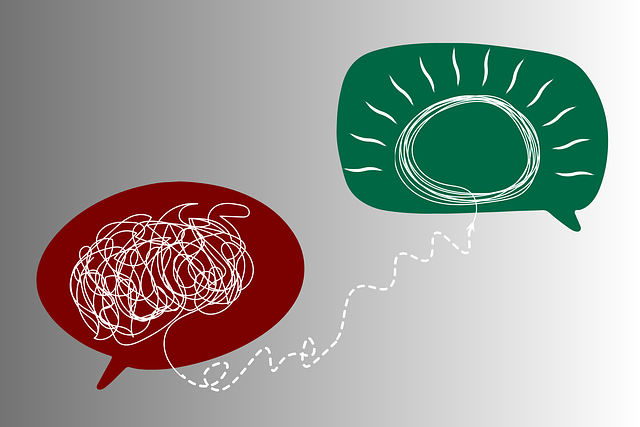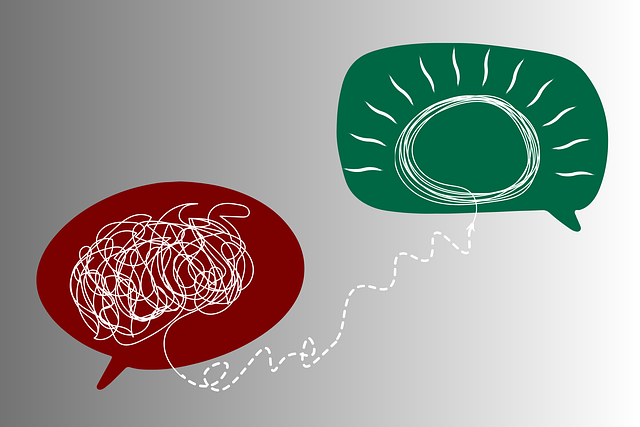Lakewood Autism Spectrum Disorder (ASD) Therapy leverages positive thinking exercises to significantly enhance well-being for individuals on the spectrum. Personalized strategies, including mindfulness, affirmations, and compassion cultivation, foster self-care skills, emotional regulation, and social interactions. Structured routines, visual aids, role-playing, and group activities create a supportive environment, promoting growth and resilience while incorporating techniques like Conflict Resolution and Mind Over Matter principles with cultural sensitivity. Regular progress assessments using self-reporting and questionnaires ensure tailored adjustments to meet unique individual needs.
“Unleash the power of positive thinking for individuals with autism spectrum disorder (ASD) through targeted exercises. This comprehensive guide explores how Lakewood Autism Spectrum Disorder Therapy can harness the transformative potential of optimism. By designing tailored activities, implementing effective strategies in clinical settings, and tracking progress, we empower professionals to enhance well-being significantly. Discover practical steps to create a positive thinking routine that truly makes a difference.”
- Understanding Positive Thinking and Its Impact on Individuals with Autism Spectrum Disorder (ASD)
- Designing Effective Positive Thinking Exercises for ASD Therapy
- Implementing the Exercises: Strategies for Success in a Clinical Setting
- Measuring Progress and Adjusting the Positive Thinking Exercise Routine
Understanding Positive Thinking and Its Impact on Individuals with Autism Spectrum Disorder (ASD)

Positive thinking exercises can significantly benefit individuals with Autism Spectrum Disorder (ASD) by fostering a more optimistic and resilient mindset. Many people on the autism spectrum often face unique challenges related to social communication, emotional regulation, and sensory processing, which can impact their overall well-being and mental health. Incorporating compassion cultivation practices, such as mindfulness and positive affirmations, into daily routines can help individuals with ASD develop self-care skills for better mental health.
These exercises promote self-awareness and encourage a more compassionate and understanding approach towards oneself and others. For instance, Social Skills Training, which is commonly used in Lakewood Autism Spectrum Disorder Therapy, can be enhanced by teaching individuals to reframe negative thoughts into positive ones. By cultivating a positive mindset, individuals with ASD may find it easier to navigate social interactions, improve their emotional regulation skills, and ultimately lead more fulfilling lives.
Designing Effective Positive Thinking Exercises for ASD Therapy

Designing effective positive thinking exercises for Autism Spectrum Disorder (ASD) therapy requires a tailored approach that caters to each individual’s unique needs and challenges. These exercises should not only promote positive attitudes but also foster practical coping skills development, which is crucial for navigating everyday situations. Professional therapists in Lakewood can integrate activities that encourage mindfulness, visual aids, and social storytelling to enhance engagement. By combining these strategies, therapists create a supportive environment where individuals with ASD can learn to manage their thoughts, emotions, and behaviors more effectively.
For optimal results, exercises should be regularly reviewed and updated based on the client’s progress in risk assessment and management planning for mental health professionals. This iterative process ensures that the interventions remain relevant and beneficial over time. Incorporating feedback from both clients and caregivers is essential to refining these positive thinking strategies, making them more accessible and impactful for ASD therapy in Lakewood.
Implementing the Exercises: Strategies for Success in a Clinical Setting

Implementing positive thinking exercises in a clinical setting for individuals with Autism Spectrum Disorder (ASD) can be highly beneficial. These exercises serve as powerful tools to enhance coping skills development and boost confidence, fostering an environment that encourages growth and resilience. Therapists at Lakewood Autism Spectrum Disorder Therapy have found several strategies effective in ensuring success. Firstly, creating a structured routine is key. By incorporating exercises into a consistent schedule, clients develop a sense of predictability and comfort, making it easier to focus on the task at hand.
Additionally, tailoring exercises to individual needs and interests is essential. For instance, using visual aids, such as pictures or social stories, can assist in explaining concepts more effectively. Empathy building strategies, like role-playing scenarios, can help clients understand different perspectives, while group activities focused on positive affirmations can foster a sense of community and belonging. These tailored approaches not only make the exercises engaging but also strengthen the therapeutic bond between therapist and client.
Measuring Progress and Adjusting the Positive Thinking Exercise Routine

Measuring progress is a vital step in any therapy journey. For individuals with Autism Spectrum Disorder (ASD) engaging in positive thinking exercises, tracking their emotional growth can be achieved through simple self-reporting methods or structured questionnaires designed to gauge mental well-being and optimism levels. Regular feedback from both the client and therapists involved in Lakewood Autism Spectrum Disorder Therapy plays a crucial role in understanding what’s working and where adjustments are needed. This iterative process allows for fine-tuning the exercise routine, ensuring it remains tailored to the individual’s unique needs and progress.
For instance, incorporating Conflict Resolution Techniques can be part of this adjustment. As clients become more adept at positive thinking, therapists may introduce scenarios that challenge their new mental framework, helping them practice applying Mind Over Matter Principles in stressful situations. Cultural Sensitivity in Mental Healthcare Practice should also guide these adjustments, ensuring the exercises remain respectful and relevant to the individual’s cultural background.
Implementing positive thinking exercises as part of ASD therapy, such as those tailored at Lakewood Autism Spectrum Disorder Therapy, can significantly enhance the well-being and daily functioning of individuals with ASD. By understanding the power of positive thinking, designing targeted exercises, strategically employing them in clinical settings, and continually measuring progress, therapists can create a supportive environment that fosters growth and development. This comprehensive approach ensures that each individual receives personalized care, ultimately improving their overall quality of life.














